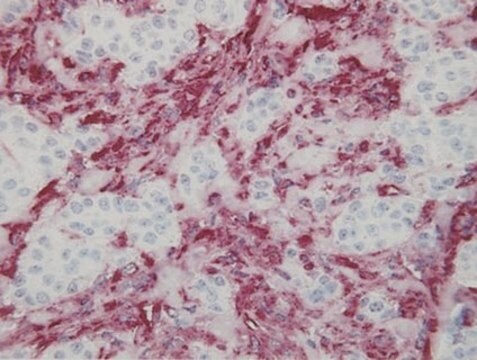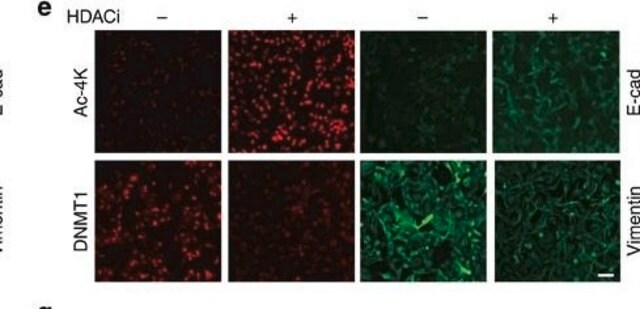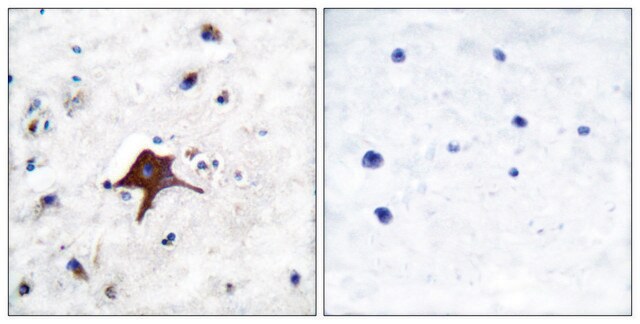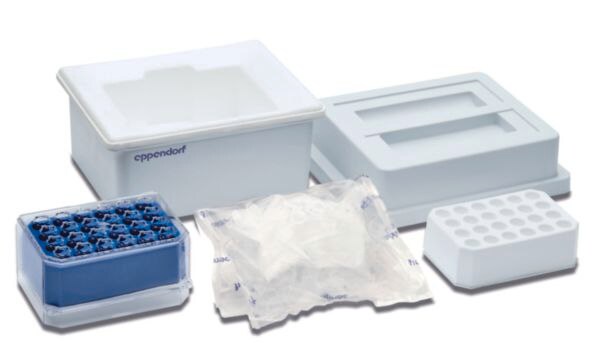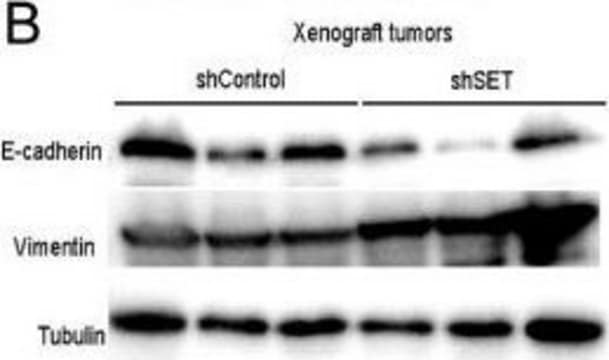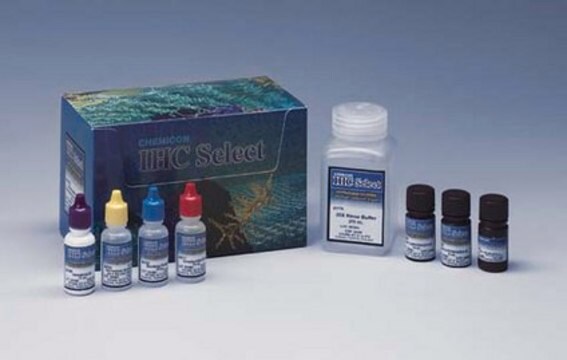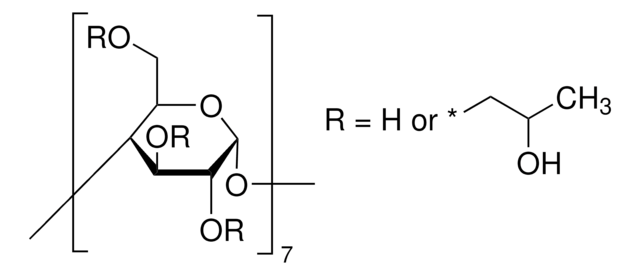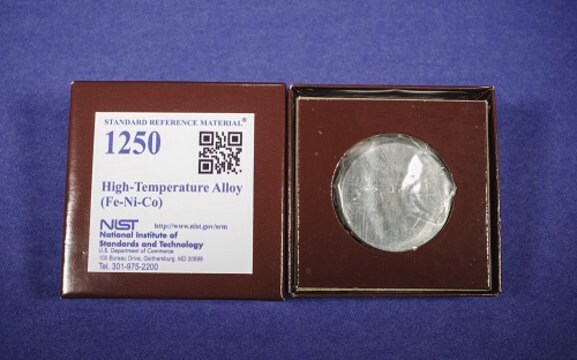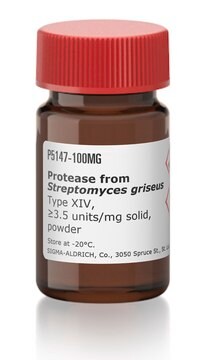413A-1
GLUT3 Rabbit Polyclonal Antibody
About This Item
Prodotti consigliati
Origine biologica
rabbit
Livello qualitativo
100
500
Coniugato
unconjugated
Forma dell’anticorpo
Ig fraction of antiserum
Tipo di anticorpo
primary antibodies
Clone
polyclonal
Descrizione
For In Vitro Diagnostic Use in Select Regions (See Chart)
Stato
buffered aqueous solution
Reattività contro le specie
human
Confezionamento
vial of 0.1 mL concentrate (413A-14)
vial of 0.5 mL concentrate (413A-15)
bottle of 1.0 mL predilute (413A-17)
vial of 1.0 mL concentrate (413A-16)
bottle of 7.0 mL predilute (413A-18)
Produttore/marchio commerciale
Cell Marque®
tecniche
immunohistochemistry (formalin-fixed, paraffin-embedded sections): 1:25-1:100
Controllo
embryonal carcinoma, yolk sac tumor
Condizioni di spedizione
wet ice
Temperatura di conservazione
2-8°C
Visualizzazione
membranous
Informazioni sul gene
human ... SLC2A3(6515)
Categorie correlate
Descrizione generale
Qualità
 IVD |  IVD |  IVD |  RUO |
Linkage
Stato fisico
Nota sulla preparazione
Altre note
Note legali
Non trovi il prodotto giusto?
Prova il nostro Motore di ricerca dei prodotti.
Scegli una delle versioni più recenti:
Certificati d'analisi (COA)
It looks like we've run into a problem, but you can still download Certificates of Analysis from our Documenti section.
Se ti serve aiuto, non esitare a contattarci Servizio Clienti
Possiedi già questo prodotto?
I documenti relativi ai prodotti acquistati recentemente sono disponibili nell’Archivio dei documenti.
Il team dei nostri ricercatori vanta grande esperienza in tutte le aree della ricerca quali Life Science, scienza dei materiali, sintesi chimica, cromatografia, discipline analitiche, ecc..
Contatta l'Assistenza Tecnica.